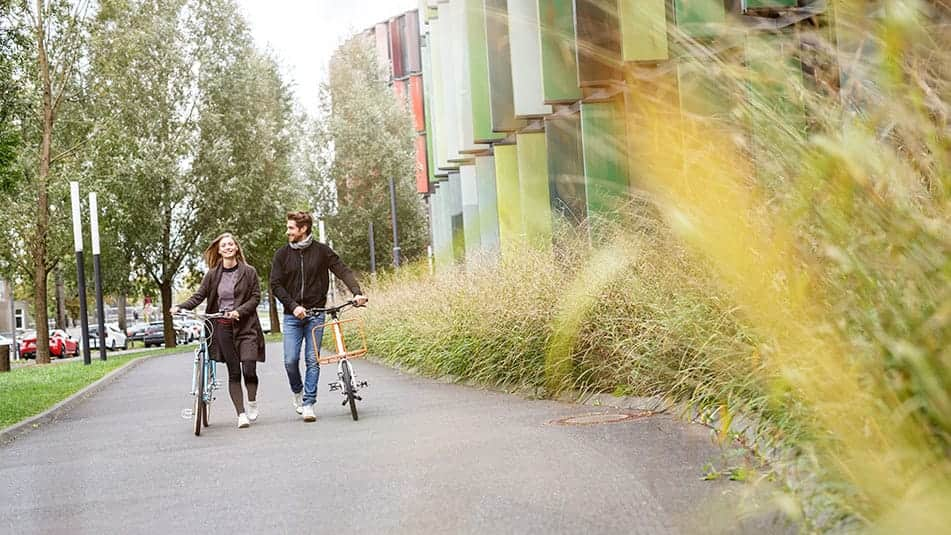-
Australia
Copyright © 2025 Powered by BCI Media Group Pty Ltd
Confirm Submission
Are you sure want to adding all Products to your Library?
Contact Detail

What makes you happy? I mean really happy? In all likelihood it’s something you can experience rather than something material you can buy, says KONE’s Environmental Director Hanna Uusitalo, adding that this is a great place to start in terms of sustainability.
Resource wisdom is the guiding philosophy for planning cities that are sustainable and create a good quality of life for all their residents. In a nutshell, it’s about creating circular, carbon-neutral regional economies that generate employment, well-being and business competitiveness.
In the vast majority of places, we’re not quite there yet. Today’s global reality is a state of imbalance. When it comes to the use of natural resources, generally speaking those nations and cities that are able to secure the well-being of citizens are using resources at a disproportionately high rate and at the same time producing an excess of waste and emissions.
How do we fix this imbalance and create cities where people’s well-being can be guaranteed without the depletion of resources and the generation of excess waste? Designing positive energy cities and neighborhoods is a start: creating regions that produce energy in smart and resource-efficient ways and consume less than they produce.
Finding value in sharing

A shift in mindset is also needed. The notion that there is intrinsic value in ownership is deeply ingrained in many societies. But what if we learned to find value in sharing, loaning, leasing and exchanging things? Could schools maintain a communal stock of winter sports equipment for the neighborhood’s children? Does everyone need to own a car? Or a bicycle? How could communities share tools? Most of us will agree that libraries are great institutions. Why are other similar initiatives often seen as difficult?
The construction and operation of buildings accounts for about a third of the world’s energy consumption and a similar proportion of greenhouse gas emissions. Transportation is responsible for another hefty chunk. Assessing and changing how we live, work and move in cities is, therefore, critical to the creation of positive energy and happy cities.
This may mean radical changes to the status quo. For example, do basic services like healthcare need to be organised in cities in a way that fixes them to a specific building? Or could they instead be delivered to people where they are, when they need them? Changes like these require a deep understanding and thorough analysis of the individual paths people take in their daily lives. Where and when does it make sense to change the people flows in cities?
Stronger together
In terms of housing, we are already seeing the return of communal living arrangements. Shared living space may become increasingly desirable as the number of single-person households rises in cities across the world. The resource savings from heating one kitchen equipped with one stove versus four are obvious.
At KONE, we aim to be a leader in sustainability. While we do not plan cities or even buildings, we do work closely with those who do. And working together systematically is another critical component of creating low carbon or even positive energy, happy cities. We put a lot of work into making sure our elevators, escalators and doors are smooth, safe, efficient and consume the least energy possible. They are also made of non-toxic materials, and our logistics are optimised to limit emissions.
But we also recognise that today’s global challenges can only be solved through collaboration with a range of actors and organisations. We are proud to work together with companies, research institutes, architects, developers, and cities themselves to contribute to the sustainable growth and happiness of cities. Sustainable and smart buildings are already here. I am convinced happy and positive energy cities will soon be, too!
Read more about sustainability at KONE



